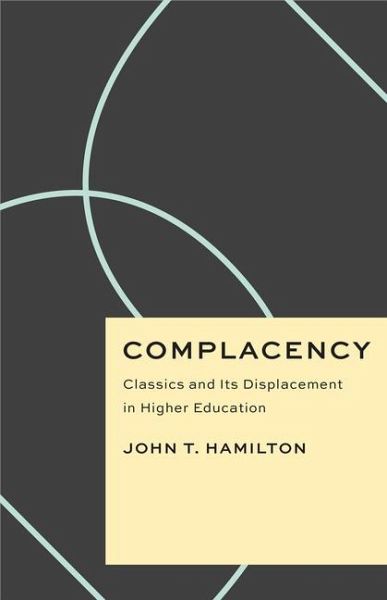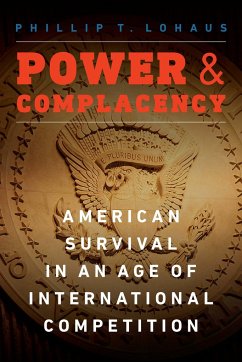Nicht lieferbar

Complacency
Classics and Its Displacement in Higher Education
"This short book examines the history of complacency in Classics with implications for our contemporary moment. It responds to a published piece by the philosopher Simon Blackburn ["The Seven Deadly Sins of the Academy," Times Higher Education (2009)] who presented "complacency" as a vice that impairs university study at its core. If today this sin is most discernible among scientists who feel that their rigorous training and verifiable results authorize them to assume omniscience in all areas of learning, this book points out that, from the nineteenth to early twentieth century, this presumpt...
"This short book examines the history of complacency in Classics with implications for our contemporary moment. It responds to a published piece by the philosopher Simon Blackburn ["The Seven Deadly Sins of the Academy," Times Higher Education (2009)] who presented "complacency" as a vice that impairs university study at its core. If today this sin is most discernible among scientists who feel that their rigorous training and verifiable results authorize them to assume omniscience in all areas of learning, this book points out that, from the nineteenth to early twentieth century, this presumption fell instead to Classicists. The subjects, philosophies, and literatures of ancient Greece and Rome were treated as the foundation of learning; everything else devolving from them. What, Hamilton wants to know, might this model of superiority derived from the golden age of the Classical Tradition share with the current hegemony of mathematics and the natural sciences? How can the qualitative methods of Classics relate to the quantitative methods of big data, statistical reasoning, and numerical abstraction, which currently characterize academic complacency? And how did the discipline of Classics lose its prominent standing in the university, yielding its position to more empirical modes of research? Finally, how does this particular strain of scholarly smugness inflect the personal, ethical, and political complacency we encounter today?"--












